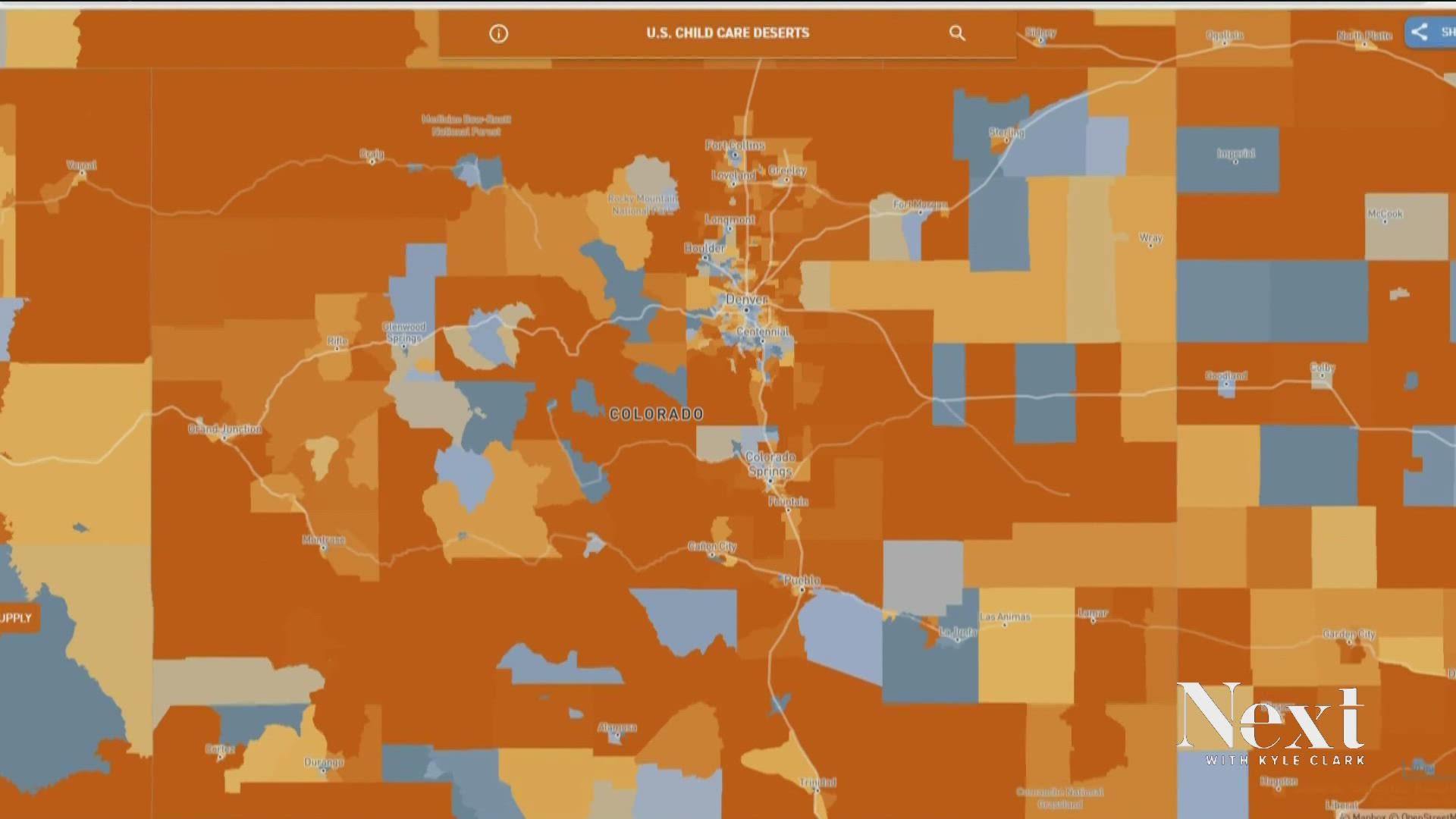DENVER — There are large swaths of Colorado where families are living in a child care desert, meaning that regardless of costs or determining if a child care center is trustworthy or a right fit, these families can't find a place close by with space for their kids.
Child care advocates and experts around the state shared this graph that shows shortages in Colorado.
The areas highlighted in orange, a huge chunk of the state, has a scarcity of providers. Areas in blue, have an adequate supply -- not a good supply, but an adequate one.
One of these spots is along East Colfax in Denver.
"I think about the groundbreaking we had and the joy," said Pamela Harris with Mile High Early Learning.
They are pairing up with Mercy Housing to develop an affordable early learning center on the 8300 block of East Colfax for around 45 kids, infants, toddlers and preschoolers for early 2023. It will be on the ground floor of a bigger five-story building with 82 affordable apartments for families.
The location is critical because Harris said this neighborhood is considered a child care desert with 760 kids under age five, 256 licensed child care spots and nearly half of the kids living in poverty.
"It won't address all the needs," said Harris. "But it's pretty significant."
"I'm envisioning families ready to find a new place to live and enroll their children in the center," she added.
A child care desert is defined by a census tract with at least 50 kids under age five, and either no child care center in that neighborhood, or at least three kids vying for one open spot.
Melissa Mares, with the non-profit advocacy group Colorado Children's Campaign, said the child care desert map is focused on licensed child care providers and believes things have gotten worse since the pandemic.
"I'm scared what's the future of this map," she said.
The map shows the shortages in lower-income neighborhoods across the state.
"Historically people of color are more impacted by child care deserts, disproportionately impacted by a lack of access to licensed child care, low-income folks are disproportionately impacted," said Mares.
It also shows rural areas and some neighborhoods considered higher income that still don't have enough providers.
"It says a lot about what we value as a society," said Mares.
Mares said this kind of shortage has a ripple effect, including impacts on the women's labor force participation and families long-term health.
"Long-term access to child care impacts a family's mental health and economic prosperity," she said.
But Mares is holding out hope that the dire situation is a wake-up call and that this could be a turning point in Colorado
She's particularly optimistic because between grants and COVID relief funds, $700 million are coming into Colorado to go toward early childhood education.
The state is also opening up a new early childhood care office to streamline finding open spots, working on career pathways for early childhood educators and address staffing and wages and streamline the process to open child care centers.
Advocates are hoping for more long-term support from the federal government.
SUGGESTED VIDEOS: Full Episodes of Next with Kyle Clark

